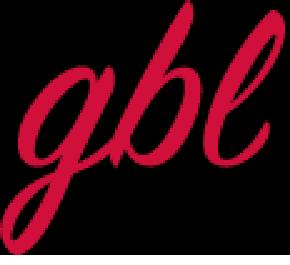We collect basic website visitor information on this website and store it in cookies. We also utilize Google Analytics to track page view information to assist us in improving our website.

Happy 2025!
Want a broad overview of how to think about your finances and set goals for this year?
This article by Srvindhya Kolluru has tips from myself, Blair Lukan and Scott Plaskett.
Building Blocks-Wealth TransferWednesday, June 7, 2017
|
||
|
Last week’s blog discussed the difference in outcome when you have a will versus the intestate rules being applied to your estate. Taking our example on step further, what happens when Mrs passes away? Based on our initial example, this family had saved and invested well. Mrs’ career allowed her to maintain the family’s lifestyle without using investments. Investment Corporation is also holding 3 in-force life insurance policies that will pay to the corporation once Mrs passes away. Assuming Mrs lives to her average life expectancy of 83, the estate will be worth approximately $14 million. If she passes sooner, at age 55, the children will inherit approximately $2,500,000 each when they are in their early 20’s. How do you increase the likelihood that your estate will benefit your family/beneficiaries and decrease the potential negative impact of what may be sudden wealth for someone unprepared?
The sooner you have these conversations, the more time you have to repeat the information. Learning happens over time, with repetition. It’s not too late to start talking as a family about your values and how to handle money and wealth so that it meets your goals instead of acting as a hindrance.
Disclaimer- the above example is a hypothetical situation for illustration purposes only and is not to be considered legal advice. Intestate rules vary from province to province. For legal advice specific to your situation, drafting and execution of your wills, please consult your lawyer.
To discuss your current situation and estate goals, please contact [email protected] to book an appointment.
Check in later in June for blogs on how to talk your kids about money and finances.
|
||
|
||
|
||
|
The Importance of having a WillWednesday, May 31, 2017
|
||
|
Our Scenario family lives in Ontario. Mr owns Operating Company, which generates approximately $500,000 in revenue per year. He takes $152,000 in salary. Mrs is a professional, earning $180,000 per year in salary. Total family expenses are $120,000 per year.
This seems like a good news story, financially. Careers are stable, living expenses are below incomes, and savings rate is high. Mr and Mrs don’t have wills or power of attorney. They’ve had initial conversations with their investment advisor and with a lawyer. They got stalled in a few questions from the lawyer, and haven’t been back to see her. In Canada, each province has rules for asset division and estate settlement if someone dies without a will. This is known as “intestate”. We may want our surviving spouse to inherit our assets and continue to parent the children with the values we had before our death; without a will, this isn’t what will happen. Mr dies suddenly without a will. After the settlement process, using the intestate laws in Ontario.
Mr dies suddenly, after completing wills leaving his assets to Mrs.
This scenario is not about financial devastation after the loss of an income-earning spouse. Financially, the surviving parent is stable, and can maintain the family’s lifestyle after the loss. This scenario is about loss of financial control, as the children will have access to a significant amount of money in their own names. The loss of financial control is preventable, through executing a will that reflects your values in a legally sound way.
Disclaimer- the above example is a hypothetical situation for illustration purposes only and is not to be considered legal advice. Intestate rules vary from province to province. For legal advice specific to your situation, drafting and execution of your wills, please consult your lawyer. How an Estate may be administered if a minor child has a claim under an Intestate Estate
To discuss your current situation and estate goals, please contact [email protected] to book an appointment
|
||
|
||
|
||
|
The Conversation We Often Don’t Start or End WellWednesday, April 19, 2017
|
||
The Conversation We Often Don’t Start or End Well
Why do we buy insurance? To protect ourselves and our families. What are we looking for protection from? Here’s where the conversation gets fuzzy- we’re not really sure. We know that there are risks- of becoming disabled, of dying prematurely, of needing treatment for cancer or a heart attack. We know there are risks that apply to us, we want protection, we can buy protection, and yet we often don’t, or what we own isn’t adequate. How does this happen? Risk can be defined as chance of a loss. Most forms of personal insurance will protect against loss of income. Using the examples above- disability, premature death and costs associated with treatment of sudden medical events- all of these can be insured against. Why does the conversation get uncomfortable, complicated and confusing? Why do many of us avoid the conversation altogether? Why do we leave ourselves and our families open to an outcome that we don’t want when there was a solution to avoid it? Let’s look at a process that can help to clear the conversation and the decision. Get the right information and Ask the right questions first. Or “Don’t Tie your Conversation to the Wrong Posts” The first wrong post- to explain this one, I will use a definition of what risk is not. “A risk is not an uncertainty (where neither the probability nor the mode of occurrence is known), a peril (cause of loss), or a hazard (something that makes the occurrence of a peril more likely or more severe).” When we get caught up in the wrong explanation of risk, we don’t make rational decisions on how to protect against the risk; we’re tying our decision-making to a wrong post. I recommend taking a look at what your risks are. The second wrong post- putting costs or benefits above your personal goals. Insurance premiums will cost you money. Life insurance benefit amounts recommended for a parent with young children and a mortgage are large. If your goal is to fully protect plans and goals that you made as a family, there may be no other way to do that except through insurance. As your circumstances change, your insurance needs will change. I recommend having a full conversation about your personal and family goals before reviewing whether you have appropriate insurance coverage. Once you have the relevant information to approach the decision, there are a few more steps to arrive at the best solution for you. Compare your Options to your Goals, not to each other Avoid Common Pitfalls Like the Binary Trap; Voting Trap and the Intuitive Trap Last question: “What’s the worst that could happen and if that happens, am I willing to accept the outcome?” To discuss your risks and how to effectively plan around them, please contact [email protected] to arrange an appointment. |
||
|
||
|
||
|

|
|
Sara McCullough 83 July 24, 2024 |

|
|
Lindsay Seyler 1 May 10, 2017 |
